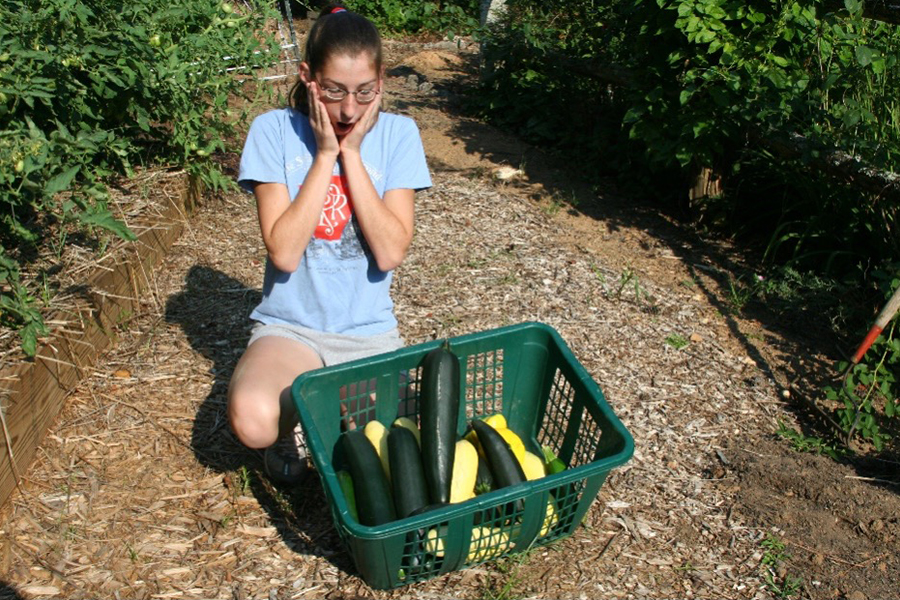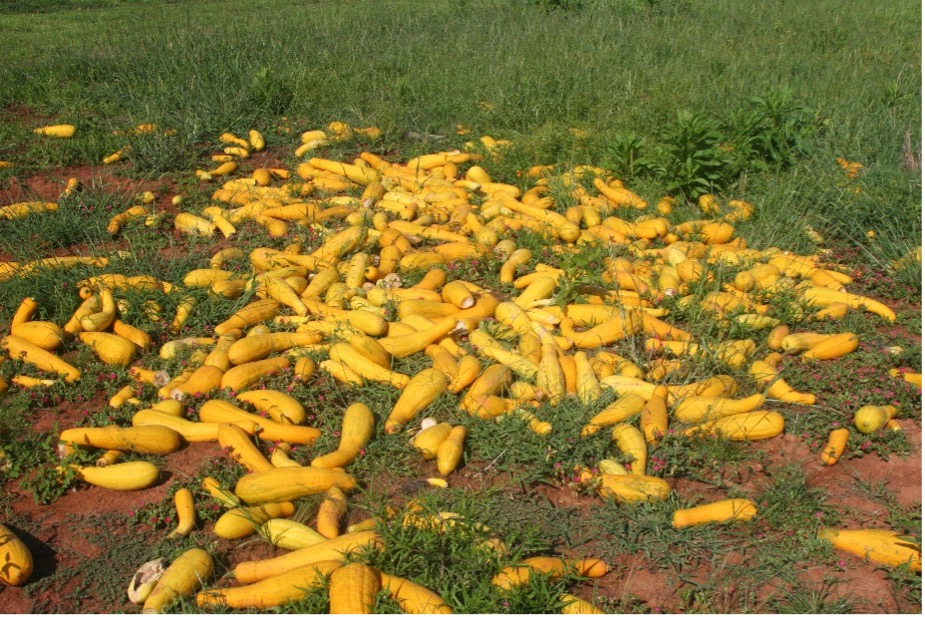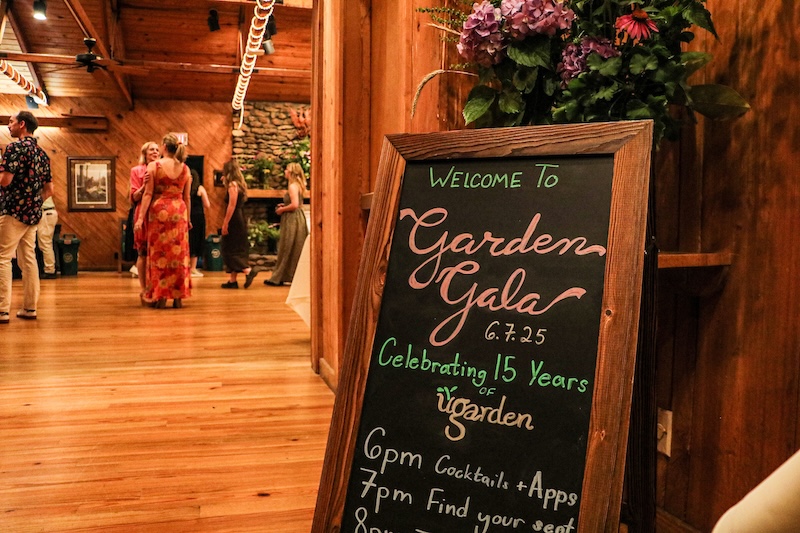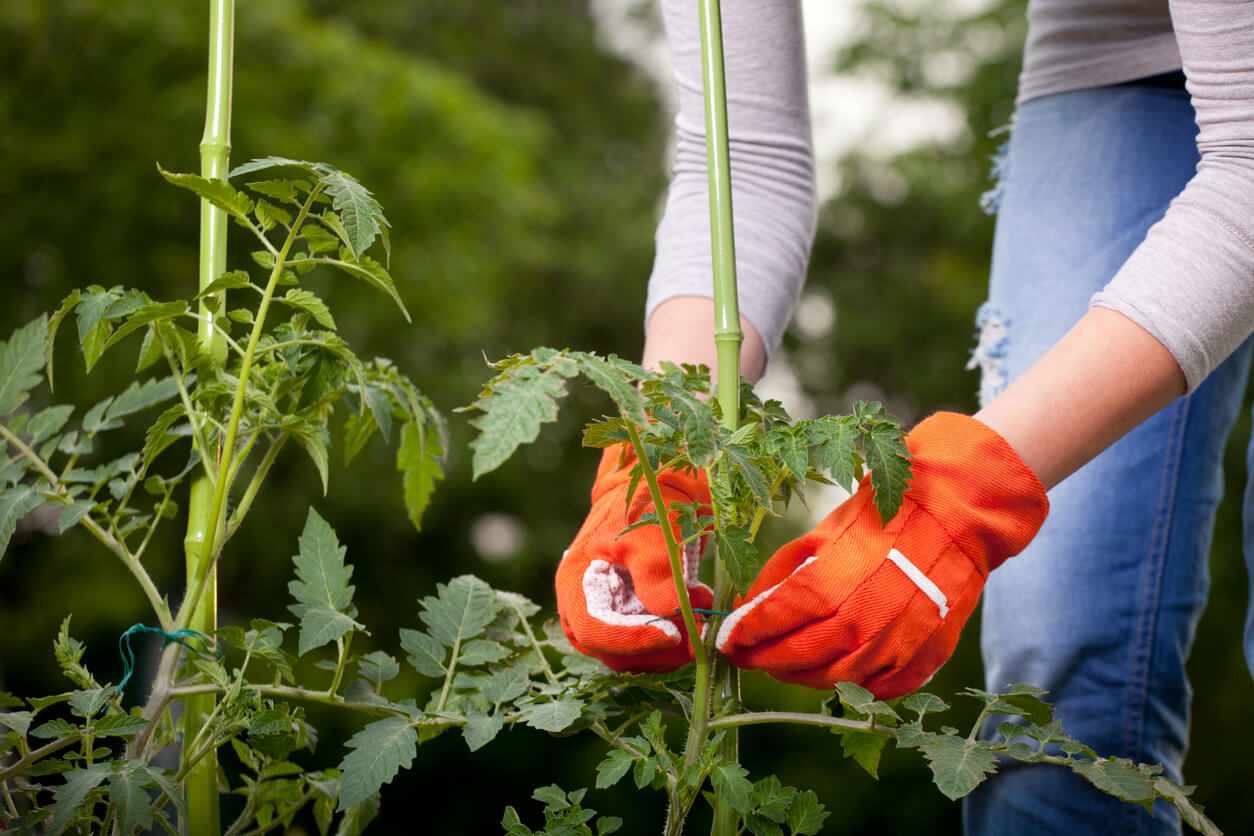
A national recognition day for giving away squash? Have you ever heard of such a thing?
Apparently, there is such a thing — it happens August 8 — and I suppose I could be the poster child for this national occasion. I have grown my fair share of squash and zucchini over the past 40 years and could have fed our military with the bounty. I have also been guilty of giving said cucurbits away in abundance to the unsuspecting. Squash, including zucchini, is certainly a popular summer vegetable in Georgia, but at times produces faster than we can keep up with.
Summer squash is available in a variety of sizes and colors. It is easily seeded directly into the garden soil in mid-spring and produces fruit quickly, within a month and a half. In my early days of planting squash, I overdid it a bit. I planted three 175-foot rows of the stuff, hoping I would have enough for my evening dinners. It did not take long for me to realize I had grossly overestimated.
We were able to eat the first few fruits and give some away to willing family members. Within a week of the initial harvest, I came to believe that elves were secretly gluing more squash onto my plants overnight. When close family members refused any more of the abundance, I quickly began offering them to my coworkers and folks at church.
After I inundated everyone I knew with this prolific vegetable, I began to look for open windows in parking lots at the church to slip unsuspecting parishioners some of my abundant harvest.
When everyone caught onto my clandestine squash gifting, I came up with another use for my aging produce. Having given away all I could to area food banks and fed all the proverbial starving children your mom warned you about, I found that squash and zucchini could be successfully launched off my clay-pigeon target thrower. I found a twisted delight in blowing these vegetables up with my shotgun. After this initial lesson in over-gardening, I now plant a more modest garden and stagger my plantings of squash.
On a serious note, squash has become a little more challenging to grow than in the past. It seems like squash bugs and squash vine borers never tire of this summer delight. While these insects have been around a long time, they seem to be in a greater abundance these days. Chemical controls only slow them down for a while before they take over the plants.

I have found the best weapon against these pests is to spread out your plantings of squash every few weeks in order to have different ages of the crop. These insects seem to be attracted to the mature plants, leaving the younger ones alone for a while. Regular harvest is also important to prevent having overly mature fruit in the garden. Older squash becomes tough to eat and emits chemical odors that can attract damaging insects.
The takeaway message is to have fun planting squash in your spring garden, but do it in moderation. As we approach late summer, we have just about passed the window of planting for this summer favorite. Consider shifting to cool-season vegetables soon or put your garden in a cover crop. Next spring will be here before you know it for you to plant more squash targets.
For more information on squash, read University of Georgia Cooperative Extension Circular 993, "Homegrown Squash," or visit extension.uga.edu/publications to browse the Extension catalog for other gardening topics.






